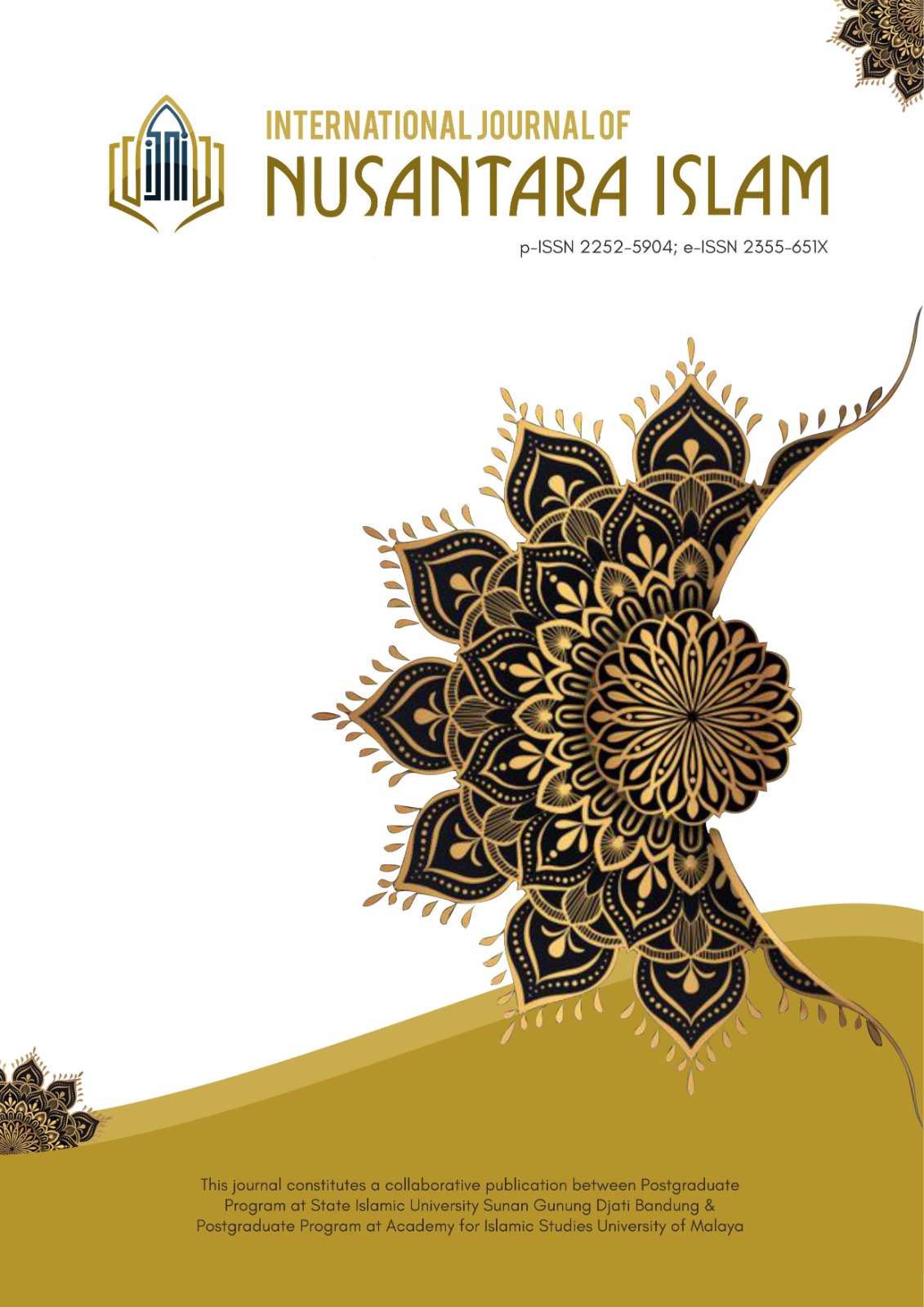

 ISSN: 2355-651X (online); 2252-5904 (print)
ISSN: 2355-651X (online); 2252-5904 (print)
Accreditation Number: 0173/C3/DT.05.00/2025 (SINTA 2)
International Journal of Nusantara Islam is peer-reviewed journal of Islamic studies. This journal constitutes a collaborative publication between Postgraduate Program at State Islamic University Sunan Gunung Djati Bandung and Postgraduate Program at Academy for Islamic Studies University of Malaya under the MoU, article (2) paragraph (1) point (ii) dated on January 24, 2011.
International Journal of Nusantara Islam:Â
Commencing from July 2023, the editorial committee has resolved to embrace a model of continuous publication for the Journal. This approach involves the online release of individual articles as they achieve a state of readiness, thereby facilitating a consistent dissemination of informative and high-caliber scholarly contributions. Concurrently, a transition to a calendrical annual issue cycle will transpire, encompassing two distinct periods of publication: January to June (Issue 1) and July to December (Issue 2). From a conventional standpoint, each volume will correspond to a singular year and encompass a solitary edition. The adoption of a just-in-time publication approach affords authors the opportunity to expeditiously present their findings. Simultaneously, it enables rapid access to our content and unhindered article citation for our readers, students, and professional peers, without being fettered by predetermined scheduling constraints. Consequently, these revisions are anticipated to engender a discernible transformation in the visual and stylistic attributes, as well as the operational aspects, of the Journal, with the aspirational outcome of enhancement
Current Issue
Vol. 12 No. 2 (2024): International Journal of Nusantara Islam
In relation to the existing situation, we, the editorial board of International Journal of Nusantara Islam, are aware of the importance of Islamic sciences in order to perceive and criticize what is happening and changing among the communities. Then, we make every possible effort to extrapolate any Islamic theory and concept concerning fiqh (Islamic jurisprudence), tarbiyah (education), kalam (Islamic theology), philosophy and the like with the intention of following changes that happens rapidly.
Published: 2025-01-01
Articles
 Abstracting/Indexing:
Abstracting/Indexing:











